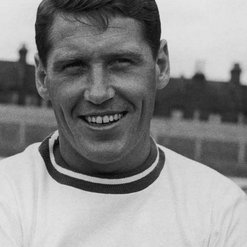Unbelievable finish! Ajax CT needed to win at Cape Town Stadium against lowly Maritzburg United, but only managed a 2-2 draw. Meanwhile Orlando Pirates took care of business at Orlando Stadium, beating Golden Arrows 2-1 thanks to an 84th-minute goal by substitute Isaac Chansa. The video captures the excitement in Soweto. We can only imagine the despair in Cape Town.
Tag: South Africa
Hamba Kahle Glenn Cowley
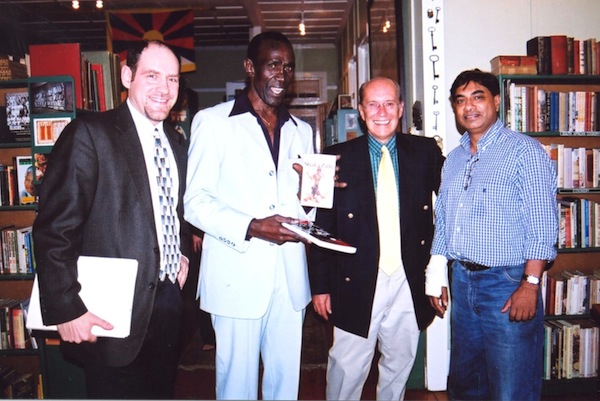
Glenn Cowley, a giant in the South African publishing industry, died after a short illness in Johannesburg. As Publisher at University of KwaZulu-Natal Press for eleven years until his retirement in 2009, Glenn developed the Press into what BooksLive called “an academic publishing powerhouse in Africa.”
Glenn’s inspiration, vision, and courage also transformed UKZN Press into arguably the leading publisher of sport history books in Africa. He was a trailblazer in recognizing how football and cricket were important topics of scholarly inquiry in their own right. Glenn also understood better than most that athletic contests have long influenced, and been influenced by, social, political, and economic factors. He passionately supported those of us who connected football and cricket with the broader quest for human rights and civil rights in South Africa. The books listed below are a testament to the ways in which Glenn helped to advance the democratization of South African history and culture:
Blacks in Whites: A Century of Cricket Struggles in KwaZulu-Natal by Ashwin Desai, Vishnu Padayachee, Krish Reddy, and Vahed, Goolam (2002)
Caught Behind: Race and Politics in Springbok Cricket by Bruce Murray and Christopher Merrett (2004)
Sport, Space and Segregation: Politics and Society in Pietermaritzburg by Christopher Merrett (2009)
Laduma! Soccer, Politics and Society in South Africa, from its Origins to 2010 by Peter Alegi (2010; first edition 2004)
Glenn’s wisdom, sense of humor, generosity, and relentless pursuit of the goodness in/of life was memorable. The photo at the top of this post was taken at my book launch at Ike’s Bookshop in Durban in May 2004, just a few days before FIFA awarded South Africa the 2010 World Cup hosting rights. Glenn is beaming next to Henry “Black Cat” Cele — the former goalkeeper who played King Shaka in the 1980s Shaka Zulu mini-series. That image captures him at his best: happily surrounded by books and people. Hamba kahle Glenn.
Click here for a tribute to Glenn by Books LIVE.
Eddie Lewis Passes Away
South African football mourns the death of Eddie Lewis. He died of cancer on May 2 in Johannesburg at the age of 76. The Englishman played for Manchester United, Preston North End, West Ham and Leyton Orient (1952-1963) before arriving in South Africa in 1970. Lewis coached Wits University — a white team — to a famous 3-2 victory over Soweto giants Kaizer Chiefs in the 1978 Mainstay Cup final. He later coached Chiefs, Moroka Swallows, and other historically black sides.
Full story here.
RIP Telkom Charity Cup
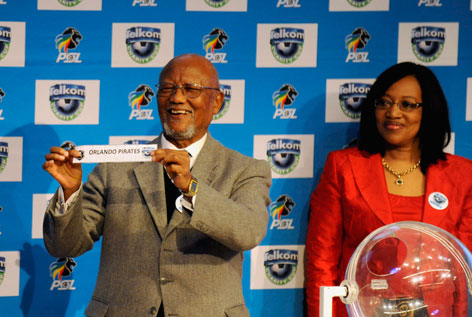
Guest blog post by Mohlomi Maubane in Soweto, South Africa
One of South Africa’s iconic tournaments, the Telkom Charity Cup, is no more. PSL chairman Irvin Khoza’s announcement this week brought down the curtain on what was arguably one of the most loved tournaments in the country.
The Charity Cup made its debut in 1986 as the Iwisa Maize Meal Spectacular. This one-day tournament quickly established itself as the domestic season opener. It featured four teams battling off in the semifinals, with the victors meeting in the final later in the day. Local football fans voted for the four teams that took part in the tournament, making the Charity Cup the most interactive professional soccer platform in South Africa. It also served to gear-up fans for the start of the new season.
And now the Charity Cup is no more, with rather puzzling reasons being given for its demise. Khoza explained that the Charity Cup was cancelled to reduce fixture congestion and player fatigue. He added that other knockout tournaments could not be cancelled as they served as qualifiers for international competitions.
Utter nonsense. First, how is canceling a one-day tournament going to reduce fixture congestion? Second, how can players’ fatigue be adversely affected by a one-day tournament at the start of the season? Third, PSL teams have long been apathetic toward African club competitions such as the Champions League and Confederation Cup. Most South African teams prefer to bypass the chance for African adventure for short-term riches at home. So it is disingenuous at best to claim that participation in continental tournaments requires burying the Charity Cup.
If the way to tell when a politician is lying is to see their lips moving, then everything said by a football administrator in South Africa should be taken with a truckload of salt. If there was a tournament worthy of being taken off the local football calendar, it is the Vodacom Challenge. This pre-season tournament features the most popular teams in the country — Orlando Pirates (owned by Khoza) and Kaizer Chiefs — playing against English Premier League opposition. Even though it also essentially entails three matches, it lasts an entire week and no other matches are played when it’s contested.
Methinks the logical reason why the Charity Cup and not the Vodacom Challenge fell to the proverbial axe is because the latter lines up the pockets of some local football heavyweights, while the former mainly benefits numerous charity organizations in the country. Talk about giving a new meaning to ‘charity begins at home’.
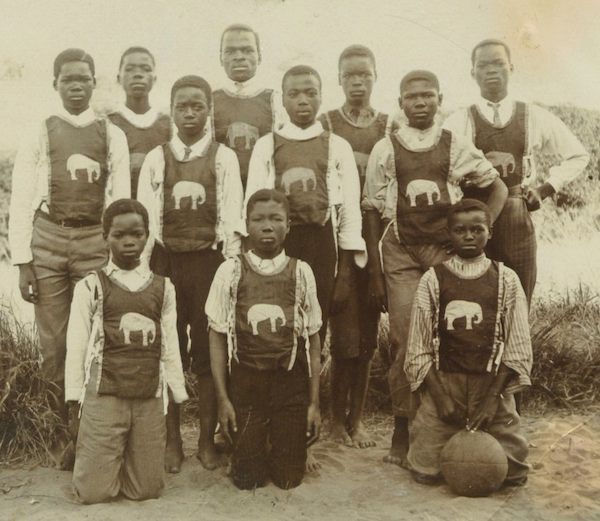
While putting together a post on Gaddafi and football, I received a poignant reminder of the century-long history of African political leaders’ involvement in the game. Richard W. Msimang, a founder of the African National Congress in South Africa, played football in school in South Africa and in Britain — where he lived for a decade — and then in 1929 was a founder of one of Johannesburg’s leading black football associations. A July 1913 newspaper article celebrating Msimang’s admission as an Attorney of the Supreme Court of South Africa includes the following passage:
Those who have met and seen Mr. Msimang have noticed what a remarkable popular and genial personality he bears. We learn that from boyhood at Emakosini, and at Mr. Dube’s School and Healdtown, in or out of school, he was always popular and well liked by all the boys who knew him. Even at Queen’s College [in Britain] he was very popular and respected by the boys with whom he studied or played.
In the sphere of games he was equally as successful as in education. At Ohlange he played for the 1st XI, and also at Healdtown he was a member of the “Healdtown Swallows” Eleven. At his first football season in England, he got his place in the School first Eleven outside left, where he played with great distinction until he left the school to start his professional training. He then played Rugby football when, during his first season on the new code, he got a place at outside-half in the 1st XV of the Taunton Rugby Football Club, and played continuously for the club. During his last season he was Vice-Captain of the team. The Taunton Rugby Club is one of the first class Rugby teams in the West of England and it is interesting to note that our new lawyer, whether playing for the school or the town team, was always the only man of colour in the game. Again the Taunton Rugby Club appreciated Mr. Msimang’s service so much that when leaving Taunton for his homeland the Club presented him with a gold watch chain and pendant inscribed in commemoration of his association with the Club. Mr. Msimang has now no intention to play football again.
Source: “The New Solicitor: Mr. R. W. Msimang”, Abantu Batho 3? July 1913 [reprinted in Tsala ea Batho 5 July 1913]. My thanks to Peter Limb for bringing this article to my attention.
Further reading: Laduma! and African Soccerscapes
Blogging History: The Case of Isiah Stein
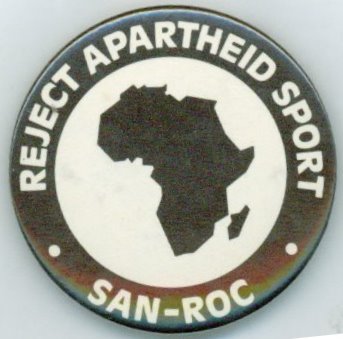
When Chris De Broglio told me the sad news of Isiah Stein’s passing I knew very little about this brave Capetonian activist. All I could remember was that he was an exiled South African, a former executive committee member of SANROC, the heart and soul of the anti-apartheid sport boycott, and that his sons had played professional football in Britain.
Then Omar Badsha, an ex-activist and founder of South African History Online, wrote a strange comment to my post. He asserted that Stein was white and could not have been incarcerated on Robben Island, a prison reserved for black political activists.
Based on the skin color of the Stein footballers, I had assumed their father was black (in the Black Consciousness sense of the word). In his comment to my post, Howard Holmes, director of the Sheffield-based Football Unites, Racism Divides (FURD), seemed bewildered by the confusion about Stein’s racial identity. After further research, I confirmed that the Cape Town-born Stein was classified “Coloured” (mixed race) under apartheid’s racial classification system. In other words, he was definitely not white.
But had he done time in the infamous apartheid prison with Nelson Mandela in the mid-1960s? This online list of Robben Island prisoners does not have Stein’s name. I consulted memoirs of prisoners and other published sources to no avail. I turned to colleagues intimately familiar with the Robben Island/Mayibuye Archives at the University of the Western Cape, but came up empty.
To resolve the matter, I sought the help of a former political prisoner who survived twelve years on the island. He sent a swift, courteous, and unambiguous reply: “Isiah was definitely not on Robben Island during the period [between] 1964 and 1975.”
I am struck by how a simple “hamba kahle” (Go Well, Rest in Peace) post in honor of a sport and human rights activist took on a life of its own. Blogging, memory, and the craft of history combined together to shed some new light on a not-so-ordinary South African and, at the same time, revealed how the history of the liberation struggle in South Africa is far from complete and seldom free of controversy and contestation.
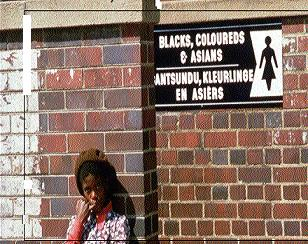
A stalwart of the anti-apartheid sport boycott movement, Isiah Stein, has passed away in the UK. After serving time in prison in the mid-1960s [perhaps not with Nelson Mandela, as noted by Omar Badsha’s comment to my earlier post], Stein left South Africa for Britain where he worked tirelessly for the exiled South African Non-Racial Olympic Committee (SANROC).
Three of his sons became professional footballers in England; Brian had an illustrious career at Luton Town and earned an England cap in 1984. Playing for Chelsea, Mark once scored in seven consecutive matches (a record which stood until 2002); Edwin meanwhile played for Barnet.
It is little-known stories like those of the Stein family from Cape Town that remind us of the dignity, humility, hard work, and sacrifice of individuals who fought relentlessly to advance the cause of sport and human rights in South Africa and beyond. Rest in Peace Isiah.
Click here for article on Stein’s passing by Kick it Out.
P.S. I will soon post a review of the “Offside” exhibition at the District Six Museum in Cape Town, which prominently features the Stein family and football’s role in fighting racism.
